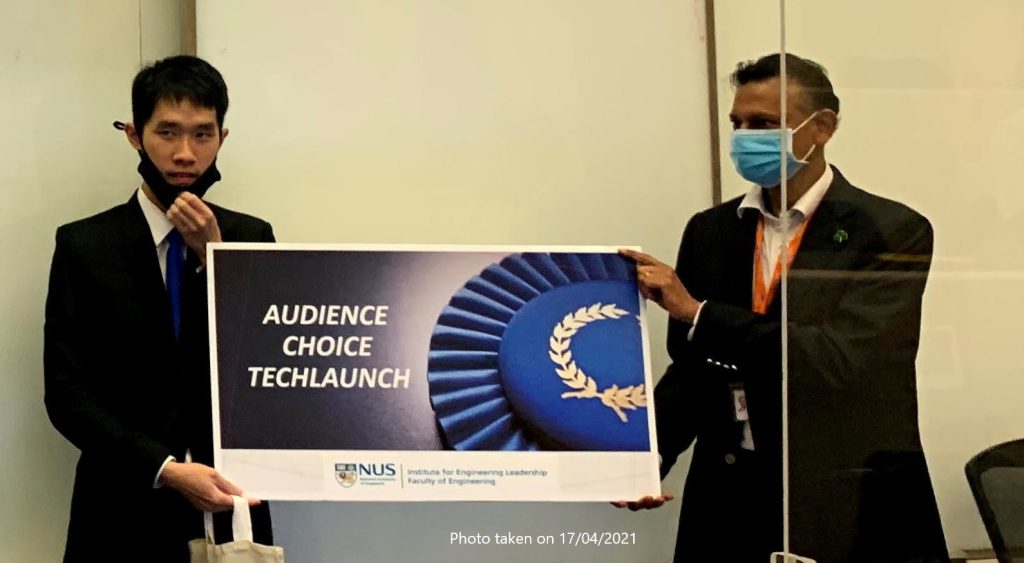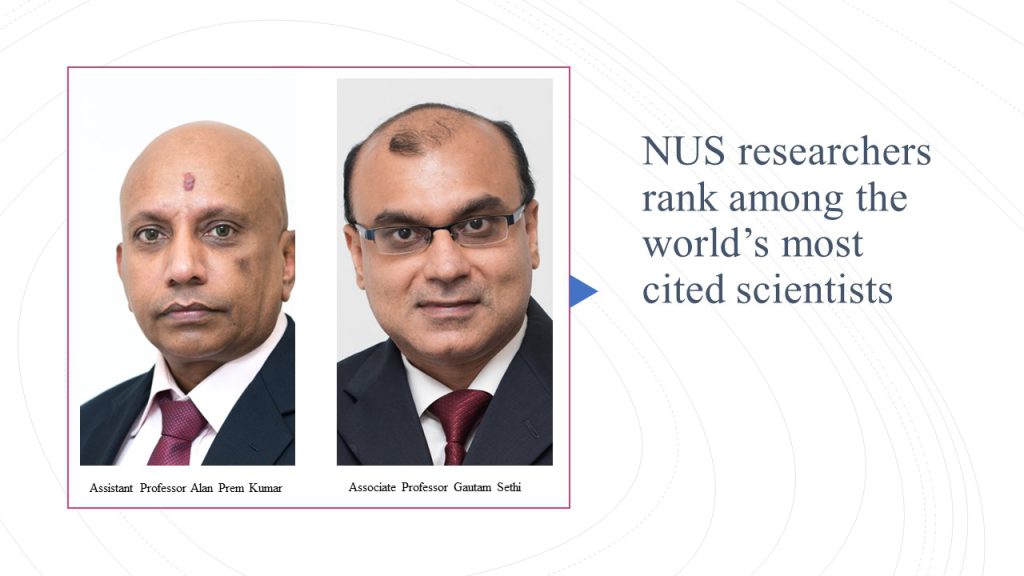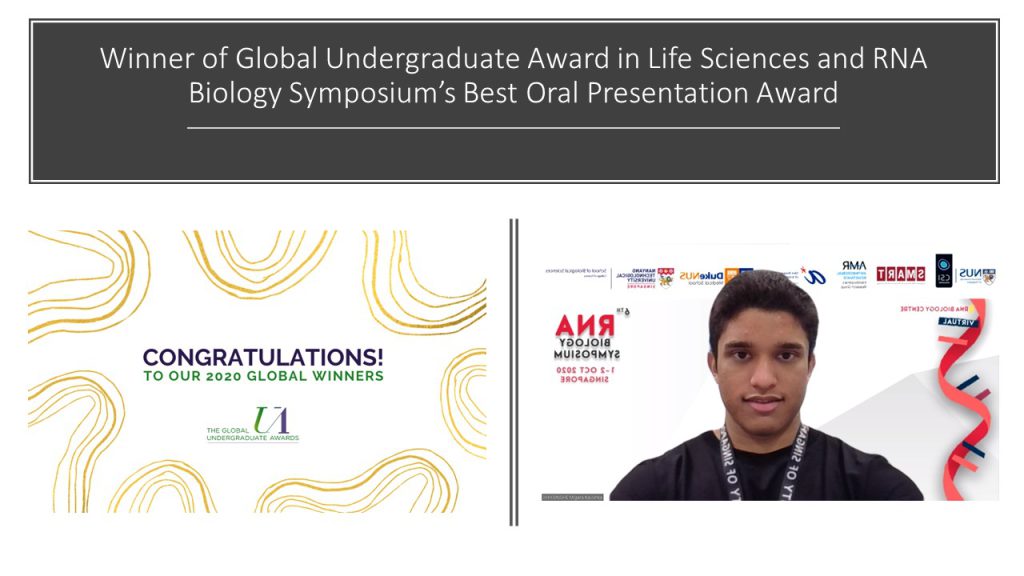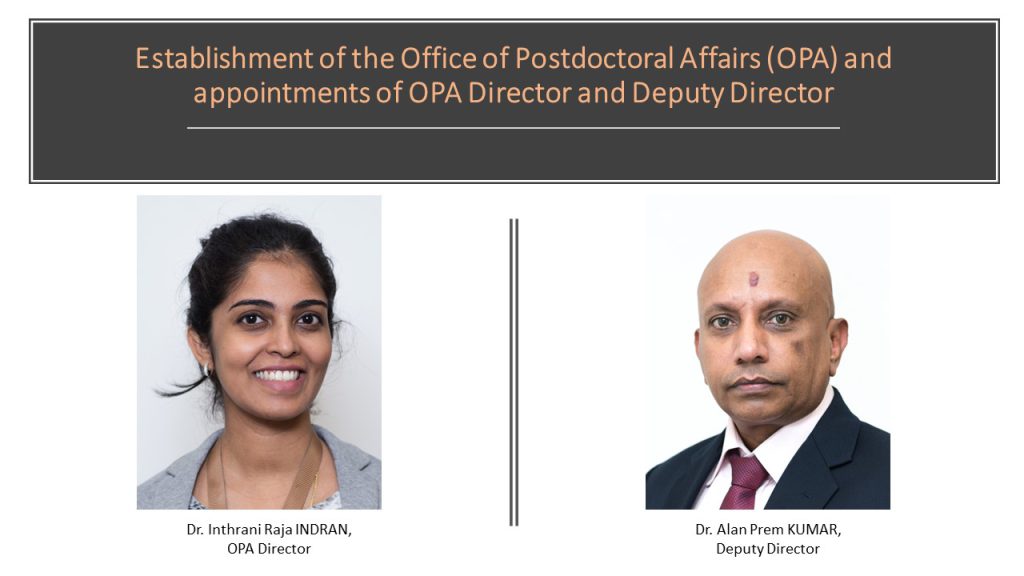Congratulations to Jay Migara Kavishka from the Le Lab (Department of Pharmacology) on winning the Global Undergraduate Award in Life Sciences and the RNA Biology Symposium’s Best Oral Presentation Award!
After a rigorous and lengthy judging process led by over 400 expert academics worldwide, UA announced those who have made it to the top in their chosen category! Out of over 4,100 submissions, 25 students have been selected as the highest performing entrants in their category for the 2020 programme. This is an outstanding achievement for some of the world’s brightest students, who are leading the way in top-class undergraduate research all across the world (undergraduateawards.com). Jay is the winner of the Life Sciences category this year.
Jay also presented his research on engineering extracellular vesicles for RNA drug delivery at the RNA Biology symposium organized by the Cancer Science Institute at NUS on October 2nd. He was the only undergraduate speaker and one among 3 speakers who received the best oral presentation awards.









